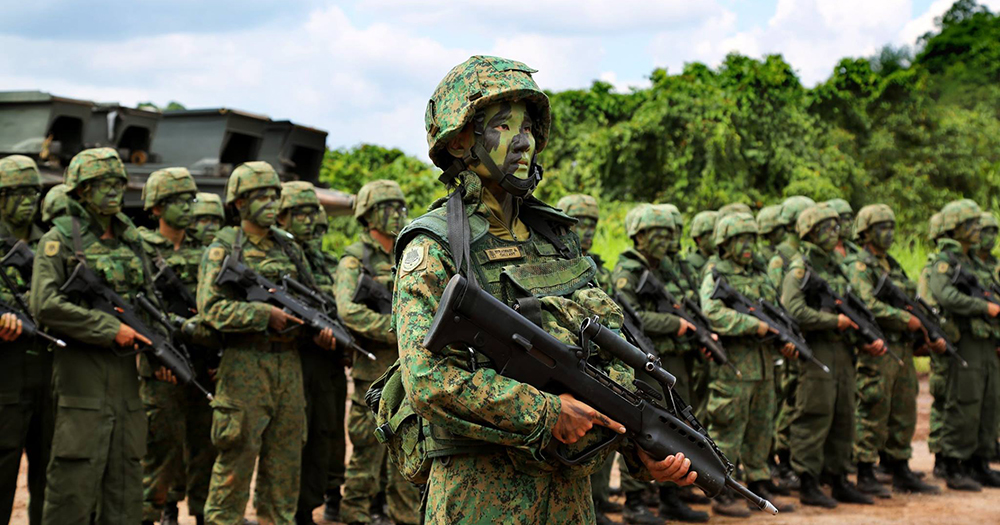On Jan. 21, 2019, a 25-year-old male Singaporean was charged with defaulting on his National Service (NS) obligations for more than three years.
According to court documents, Zaley Cheng Xi Xiong had failed to report for full-time NS enlistment from Jun. 10, 2014, to Aug. 30, 2017 -- a period of three years, two months and 21 days.
Travelled outside Singapore instead
Additionally, Cheng had allegedly travelled outside Singapore without a valid exit permit for around the same period although it was not stated where he had travelled to, according to Today.
Cheng is now out on a S$10,000 bail and will return to court on Feb. 4.
If convicted under the Enlistment Act, an NS defaulter may be punished with a fine not exceeding S$10,000, a term of imprisonment not exceeding 36 months, or both.
The same punishment applies to individuals who stay outside the country without a valid exit permit, when one is required to enlist.
How does the law work?
On July 25, 2017, the High Court set out sentencing benchmarks with the ruling that the length of sentences should be amplified for those who have defaulted for a longer period of time, as a form of deterrence.
Here's a quick breakdown of how the sentencing of a person who defaults on NS is charged:
- Two to six years of defaulting: Two to four months of imprisonment,
- Seven to 10 years of defaulting: Five to eight months of imprisonment,
- 11 to 16 years of defaulting: 14 to 22 months of imprisonment,
- 17 to 23 years of defaulting: 24 to 36 months of imprisonment,
- Exceeding 23 years, which means evading the entirety of NS obligations: 36 months.
The High Court's ruling did highlight, however, that voluntary surrender could be a mitigating factor, resulting in the NS defaulter potentially receiving a sentencing discount.
What was the July 25, 2017 ruling in response to?
The ruling had been primarily in response to a October 2016 case of two brothers, Sakthikanesh Chidambaram and Vandana Kumar Chidambaram, who had remained outside of Singapore without a valid exit permit and failed to report for NS.
In the case of Sakthikanesh Chidambaram, it was for a period of more than five years, whereas for his younger brother, Vandana Kumar Chidambaram, it was for a period of more than three years.
Both brothers reportedly did very well when they did return to serve, however, with the elder brother being selected for Officer Cadet School (OCS) and the younger brother winning a Soldier of the Month Award.
Both brothers had surrendered themselves and pleaded guilty to their charges.
As such, the elder Chidambaram was jailed for three weeks, while the younger Chidambaram was fined S$6,000.
The ruling also referenced another case of NS default by a 44-year-old man called Ang Lee Thye, who had evaded NS for 23.5 years -- the longest period possible under the Enlistment Act, The Straits Times reported.
In this case, Ang had moved overseas to the US at the age of 14, and had failed to obtain a valid exit permit to remain outside Singapore when he was required to do so.
Ang had also failed to comply with Registration Notices issued by Mindef's Central Manpower Base (CMPB) to report for pre-enlistment registration and screening, and to apply for for an exit permit.
The ruling noted that Ang "only returned to Singapore at the age of 41, beyond the statutory age of 40 and when he could no longer fulfil any of his NS obligations".
Ang was subsequently sentenced to 33 months' imprisonment, after the judge took into account the fact that he had pleaded guilty and voluntarily surrendered.
How many NS defaulters are there on average?
Top image cover from Singapore Armed Forces Facebook
If you like what you read, follow us on Facebook, Instagram, Twitter and Telegram to get the latest updates.
